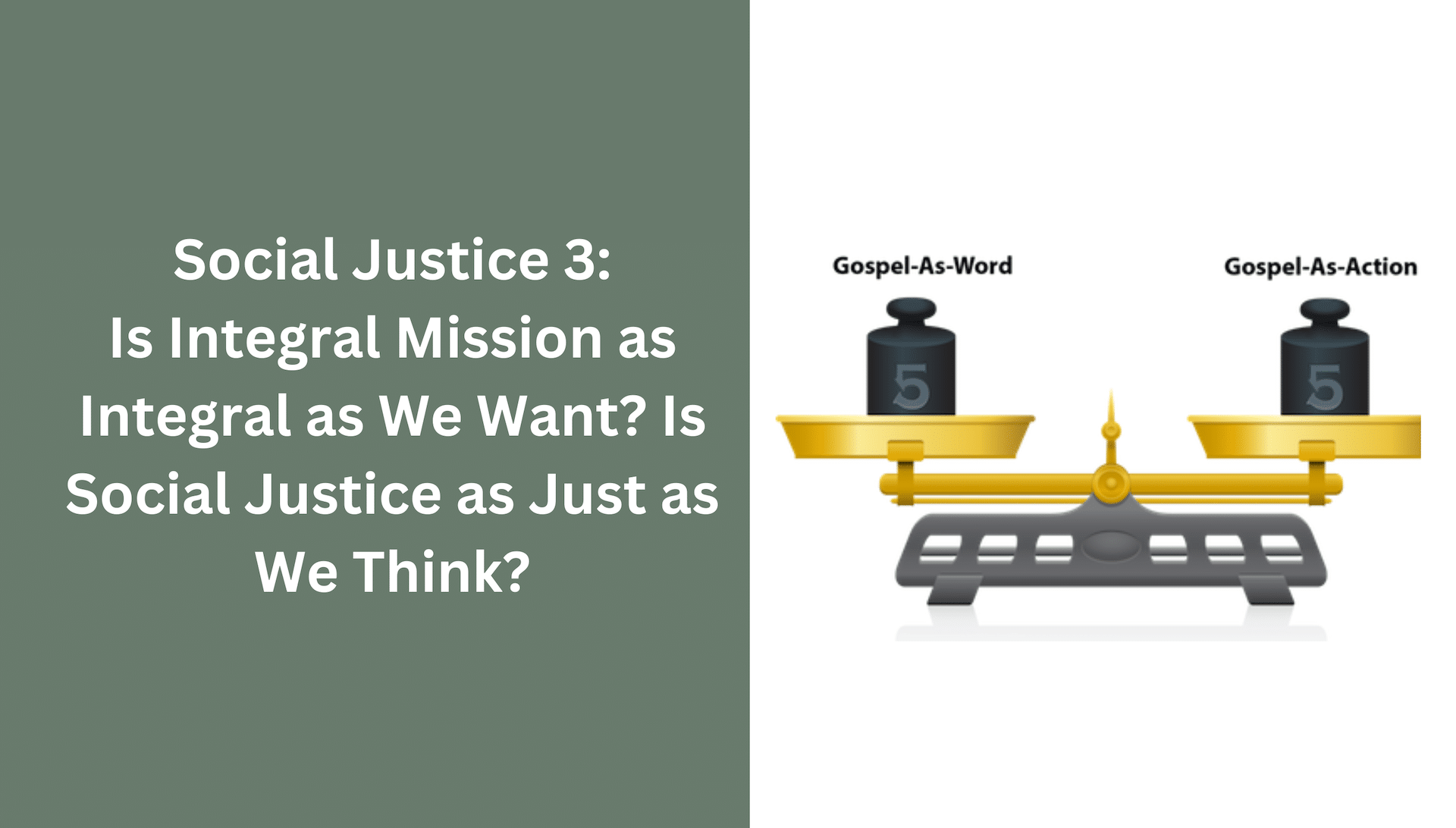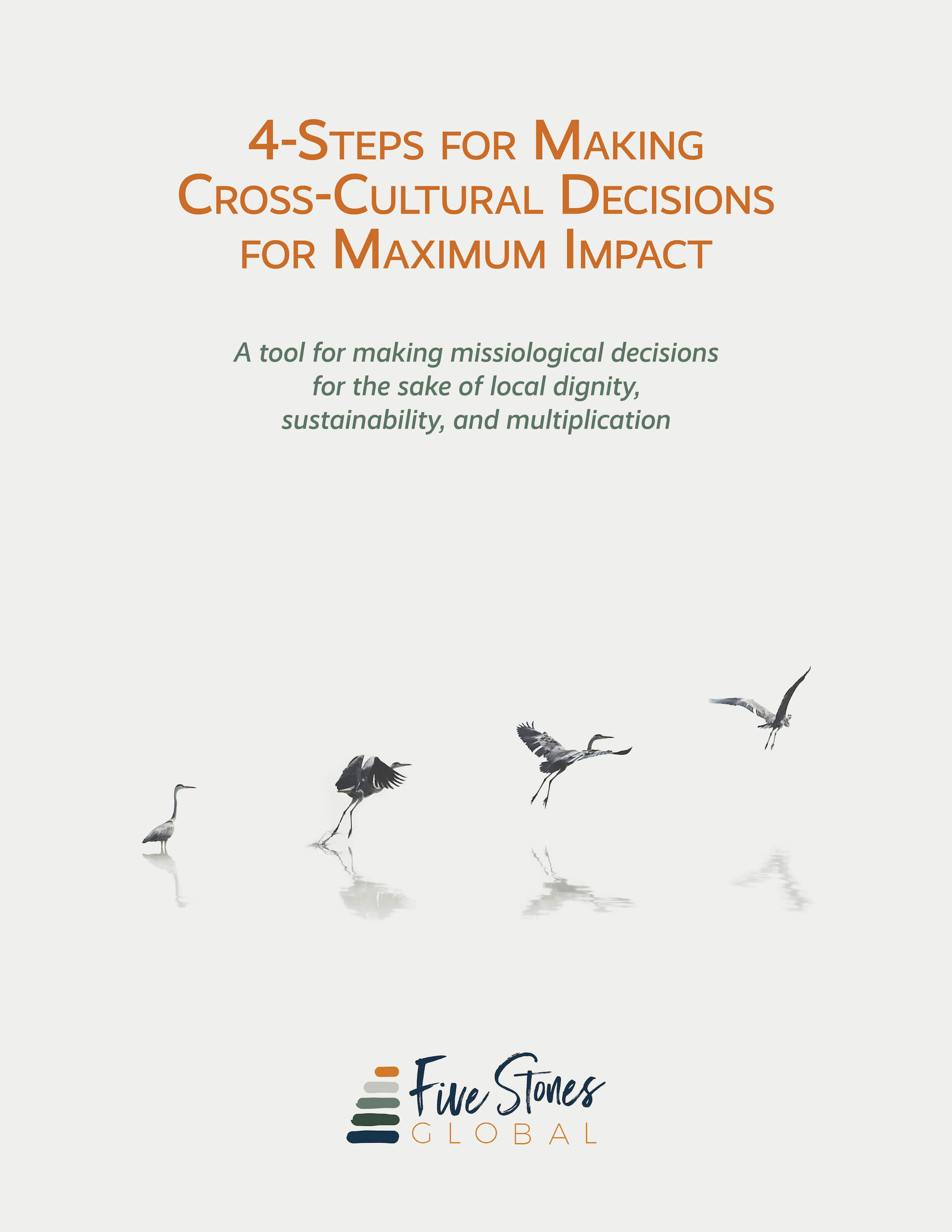By Jean Johnson, Director of Five Stones Global
The Lausanne Movement describes integral mission as a style of mission that recognizes “no biblical dichotomy between evangelistic and social responsibility.” Putting this concept into the form of an action statement, we might say that integral mission is “integrating the proclamation of the gospel and social action.”
When I served in Cambodia, I sure thought I was practicing this integral approach to mission. But there was one significant problem—one day I turned around and realized that none of the Cambodians were following in my footsteps.
The reason they were not following was quite simple: they couldn’t do what I did without my money, my donors, my novelty that goes with being an American, and my worldview understanding. They either had to become like me—an impossible goal for them—or rely on me.
As I realized this, it dawned on me that integral mission loses its integration, social action loses its action, and social justice loses its justness when I as a missionary make it difficult for cultural insiders to seamlessly proclaim and demonstrate the gospel to their neighbors without depending on my worldview systems, donors, donations, and donor-driven complexities. Simply stated, just because the mission was integral for me didn’t make it integral for them.
This new revelation changed my assignment. I understood now that I had to inspire local people to put their heads together and use what they had to create what they needed for integral mission.
Over the years I have seen an increase in locally reproducible models for the proclamation of the gospel (such as disciple-making movements, or DMM). But for some reason when it comes to the social action piece of integral mission, we tend to throw out best practices.
For example, let’s say we raise funds to start and subsidize a preschool, which is conceptualized and organized based on our worldview assumptions, to act as our social action partner in the proclamation of the gospel in a particular country. If the local people themselves cannot readily start, sustain, and reproduce Western-style preschools, we have created a unbiblical dichotomy between evangelistic and social responsibility. I know this sounds harsh, but if we model the integration of gospel-as-word and gospel-as-action without the DNA of reproducibility and spontaneity for local people, we are flirting with colonialism—making ourselves the center of attention, indispensable to the ability of the local people to love their neighbor as themselves. We can disguise our efforts in words like poverty alleviation, community development, partnership, non-profits, and compassion all day long, but integral mission is not integral if the local people cannot integrate it without us running the show.
If we truly want to promote integral mission, we need to put the cross-cultural work back on our own shoulders rather than requiring the local people to adjust to us. We will have to learn the local culture and worldview enough to know how to use local ideas and resources to create what we need for integral mission.
Jim Harries with Vulnerable Mission Alliance advocates for an alternative that affirms local people to own, drive, and indigenize integral mission and social justice in their own neighborhoods: “Progress through local initiatives in line with local lifestyles.”
My next blog will speak to this question: How can we encourage locally initiated, lifestyle-based endeavors of social justice and social action?
Something to Think About:
1. How have you possibly created a breakdown in the integration of gospel-as-word and gospel-as-deed because of centering it around your worldview systems, donors, donations, and donor-driven complexities?
2. How can you encourage and model integral mission and social justice that is reproducible and organic for the local people you serve?
Click to Visit Social Justice 1 – God Designed Social Justice — Don’t You Dare Hit Her!
Click to visit Social Justice 2 – How Does Spiritual Justice Play Out?
Want More! Get Your Copy of:
We Are Not The Hero book, participant’s Guide, and videos
Standing On Our Own Feet Workbook
Go Light! Go Local!: A Conscientious Approach to Short-Term Missions
Click to learn about Disciple-Making Movements


